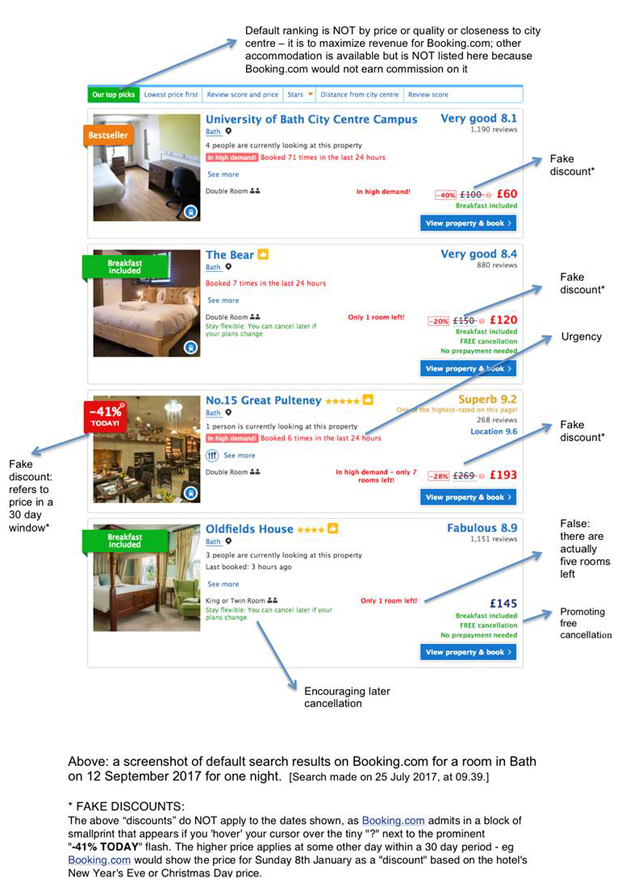The two global giants are not being fair to the consumer or to accommodation owners, argues David Weston, chairman of the UK B&B Association
What comes between a hotel or bed and breakfast (B&B) and its client? Not so long ago it could be a travel agent, who added value with their knowledge and took their 10%. Then online travel agents (OTAs) appeared – initially to do a similar job.
Now, though, OTAs are nobody’s ‘agent’. They don’t give the unbiased choice and transparent information consumers think they are getting, and they certainly don’t act as agent of the accommodation owner.
This is now an unequal and unfair relationship, at times verging on the abusive.
The two giant US OTA groups – Priceline, which owns Booking.com, Kayak and others, and Expedia, which owns Hotels.com, Trivago and other brands – have some 80% of the market.
The imbalance of power between these two and an independent hotel or B&B is extraordinary.
Our B&B members have no negotiation of terms with these global giants – it is ‘take it or leave it’, and what we have to take often seems unfair.
How have these platforms carved out such a dominant position in our industry, extracting such a significant and growing cut from the prices paid by consumers and driving up prices?
These are some of the ways:
• The OTAs use their vast financial firepower to buy the top places on Google search, so the OTA appears under the hotel or B&B property’s name in search results and all clicks on the name yield commission to the OTA – typically 15-18%.
• They invent false discounts to give the impression the room being sold has been discounted by the OTA when it has not (see graphic)
• The OTAs force properties to build the commission they demand into the room price, using rate-parity clauses even where the hotel or B&B sells direct from its own website, allowing the OTAs to claim they “always have the best deals”.
• The sites are easy to use – the OTAs have the deepest pockets to develop compelling, user-friendly websites and phone apps.
• They use their size and market power to promote their brands extensively online, on TV and in email marketing campaigns to the extent that even the largest hotel groups cannot now compete.
• They promote the idea that consumers can easily cancel bookings where this might not be so easy direct, even though cancellation fees may be due. This results in vastly higher cancellation rates on OTA bookings and hidden costs to hotels and B&Bs. Members tell us OTAs routinely pressure them to waive their proper charges for the OTA ‘client’.
• They create misleading urgency by statements such as “only 2 rooms left” (when there may be more available direct), “in high demand”, “booked six times in the last 24 hours”, or “three people are currently looking at this property”, and by false discount statements like “-41% TODAY” when the OTA has no discount on that room that day.
The price claims – enforced by the restrictive practice of rate parity, now banned in France and Germany – and false discounts clearly work. Surveys show 85% of consumers say they book with an OTA “to get the best price”.
Consumers also believe the OTAs offer an unbiased search of the full range of accommodation. In reality, what might be more suitable accommodation is not offered because it does not yield commission to the OTA.
The search results are manipulated to make the OTA the most money, not best to meet the consumer’s search requirements
We have raised these anti-competitive practices with the EU and the UK Competition and Markets Authority (CMA) and are calling on them to take action to ensure the OTAs are transparent, honest and unbiased, and allow accommodation owners a fair measure of commercial freedom.
We are also calling on OTAs to stop promoting the idea of free and late cancellation.
The central message of Booking.com’s current UK TV advertisement is: book what you like – you can always cancel it later.
Coping with the resultant high rates of late cancellation can be financially devastating if you only have a handful of rooms. Is this a fair way to treat the small businesses that Booking likes to call ‘partners’?

The Bed & Breakfast Association is the UK trade association for the B&B and guest house sector – some 25,000 small businesses. David Weston sits on the UK government’s Tourism Industry Council.
More:
UK association files multiple complaints against Booking.com
